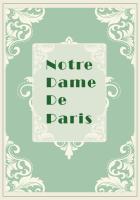In this case the vibration caused by the first round pillar perishes as soon as it is formed:and one of quite another sort (the square)directly occupies its place;which,however,it resigns as quickly to the round one;and thus the eye proceeds,alternately;taking up one image,and laying down another,as long as the building continues.From whence it is obvious,that,at the last pillar,the impression is as far from continuing as it was at the very first;because,in fact,the sensory can receive no distinct impression but from the last;and it can never of itself resume a dissimilar impression:besides,every variation of the object is a rest and relaxation to the organs of sight;and these reliefs prevent that powerful emotion so necessary to produce the sublime.To produce therefore a perfect grandeur in such things as we have been mentioning,there should be a perfect simplicity,an absolute uniformity in disposition,shape,and colouring.Upon this principle of succession and uniformity it may be asked,why a long bare wall should not be a more sublime object than a colonnade;since the succession is no way interrupted;since the eye meets no check;since nothing more uniform can be conceived?A long bare wall is certainly not so grand an object as a colonnade of the same length and height.
It is not altogether difficult to account for this difference.When we look at a naked wall,from the evenness of the object,the eye runs along its whole space,and arrives quickly at its termination;the eye meets nothing which may interrupt its progress;but then it meets nothing which may detain it a proper time to produce a very great and lasting effect.The view of the bare wall,if it be of a great height and length,is undoubtedly grand;but this is only one idea,and not a repetition of similar ideas:it is therefore great,not so much upon the principle of infinity,as upon that of vastness.But we are not so powerfully affected with any one impulse,unless it be one of a prodigious force indeed,as we are with a succession of similar impulses;because the nerves of the sensory do not (if I may use the expression)acquire a habit of repeating the same feeling in such a manner as to continue it longer than its cause is in action;besides,all the effects which I have attributed to expectation and surprise in sect.II,can have no place in a bare wall.
[Footnote 1:Part II.sect.10.]
XIV
Locke's Opinion Concerning Darkness Considered [Footnote 1:Part II.sect.3.]
It is Mr.Locke's opinion,that darkness is not naturally an idea of terror;and that,though an excessive light is painful to the sense,the greatest excess of darkness is no ways troublesome.He observes indeed in another place,that a nurse or an old woman having once associated the idea of ghosts and goblins with that of darkness,night,ever after,becomes painful and horrible to the imagination.The authority of this great man is doubtless as great as that of any man can be,and it seems to stand in the way of our general principle.1
We have considered darkness as a cause of the sublime;and we have all along considered the sublime as depending on some modification of pain or terror:so that if darkness be no way painful or terrible to any,who have not had their minds early tainted with superstitions,it can be no source of the sublime to them.But,with all deference to such an authority,it seems to me,that an association of a more general nature,an association which takes in all mankind,and make darkness terrible;for in utter darkness it is impossible to know in what degree of safety we stand;we are ignorant of the objects that surround us;we may every moment strike against some dangerous obstruction;we may fall down a precipice the first step we take;and if an enemy approach,we know not in what quarter to defend ourselves;in such a case strength is no sure protection;wisdom can only act by guess;
the boldest are staggered,and he,who would pray for nothing else towards his defence,is forced to pray for light.
As to the association of ghosts and goblins;surely it is more natural to think,that darkness,being originally an idea of terror,was chosen as a fit scene for such terrible representations,than that such representations have made darkness terrible.The mind of man very easily slides into an error of the former sort;but it is very hard to imagine,that the effect of an idea so universally terrible in all times,and in all countries,as darkness,could possibly have been owing to a set of idle stories,or to any cause of a nature so trivial,and of an operation so precarious.















